By Argyro Vourdoumpa and Andriana Simos
Medical professionals, teachers, police officers, pilots and customer service officers. People earning money in their family, when another member may have lost their job. They are some of our community’s essential workers.
In a time of uncertainty, many Greek Australians work day and night to keep us safe and to make sure we have access to necessary services while facing great challenges and potential threats to their own health.
How do they keep up and how do they cope with the current situation? What is their message to the wider community? Here’s what they told The Greek Herald.
Helen Zahos, Registered Nurse, Gold Coast:
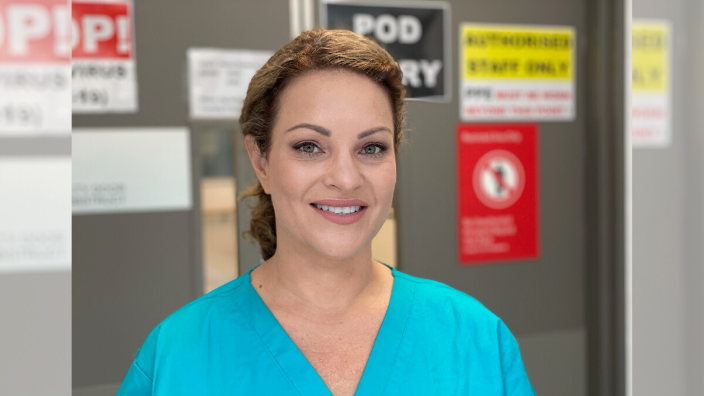
Q: How do you keep up and how do you cope with the current situation?
A: I am coping ok, I think everybody has experienced some sort of shock or disbelief that this is actually unfolding as well as the affects to people directly and indirectly through loss of jobs, closing of businesses and especially those that have lost loved ones because of this pandemic.
Our role is unchanged in that we are in the Intensive care unit to care for those that are critically ill. The difference now is we apply PPE and we have separate areas to look after these patients.
We do have COVID-19 patients in our intensive care unit. I think we are even more cautious and there is an awareness of everything we touch and do. It is hot under the PPE (Personal Protection Equipment) and the masks are tight on your face which make you feel claustrophobic and it is hard to talk to patients through the mask.
It can be daunting as you approach the area where you get changed and approach the area, but that is because we are aware of the seriousness of this virus and how easily it spreads. As nurses, we support each other as well as looking after the patients, essentially we are just doing the job that we know but it is different.
At first I think you feel a bit anxious or nervous but you get over that quickly. COVID-19 seems to be all that we talk about, we are always anticipating what is going to happen and how bad it will get but we are ready, and really well prepared. The mood at the moment changes day by day, the situation changes, people are feeling tired and there is an emotional tiredness as well.
The nurses I work with have children and families, they have concerns like passing this onto their children. I know I self isolate between shifts and I don’t see my mother or my sister as she has a young baby. I knew once I started at the hospital that I would not see them for a few months and I have prepared myself mentally for that now.
Q: What is your message to the wider community?
A: Stay home, adhere to social distancing measures and wash your hands especially if you have ventured out to go to the grocery shops. Be aware of what you are touching and who you are coming in contact with.
Keep an eye on your neighbours, especially your elderly. They are very vulnerable at this time, there is a lot of fear at the moment in the community. The Greek community can support each other through this time. This is just a hurdle, it does not have to be a barrier and we need to support each other as a community and try and continue the things we would normally be doing but in a different way.
Michael Koullouros, Acute Surgical Unit Registrar, Adelaide:
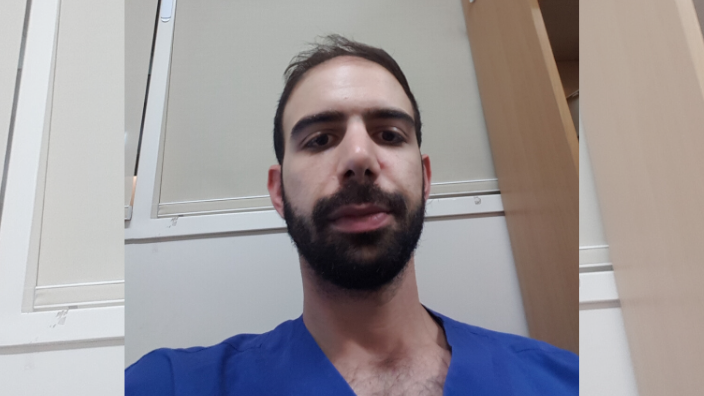
Q: How do you keep up and how do you cope with the current situation?
A: Currently morale is good but the work environment is a bit tense, as everyone is expecting a huge influx of patients flooding the healthcare system over the next few months.
Much of the non-urgent elective surgery is postponed, we are getting daily emails with updates on the SA COVID-19 status and planning, and we have had tutorials regarding correct use of PPE and guidelines for testing and management. We know that there are plans of redeployment of staff at all levels across various SA health sites if required.
Naturally we are all a bit anxious to see what happens with COVID-19 itself, where we end up working and under which conditions, bearing in mind what happened in other countries. All we can really do is our best given the circumstances and we take each day as it comes. At the end of the day Australia appears to be one of the best-prepared countries.
Q: What is your message to the wider community?
A: When it comes to the wider community, it is important for people to remember that the fight against any disease does not start in hospitals, it starts at home and the community. Same with COVID-19. People need to remind themselves that they can make a very real difference with simple measures: social distancing, isolating as indicated by government and health boards, limit your movements and most importantly good hand hygiene. Things are likely going to get worse before they get better, but as long as everyone is doing their part I am sure we will be ok.
Nicholas Ikonomos, Pharmacist, Adelaide:
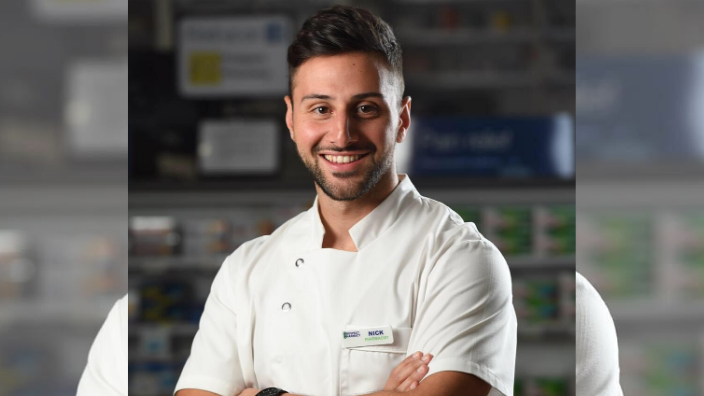
Q: How do you keep up and how do you cope with the current situation?
A: Take things day by day. With the overload of new information, it’s important to stay agile and adapt to the ever changing climate. In my pharmacy for example, I decided to split up the staff into two groups, working on separate days. In the worst case scenario that one team goes into isolation the other team can step in and continue providing essential medication to the community. Surviving is all about thinking ahead.
Q: What is your message to the wider community?
A: My message to the wider community is to stay calm. We will get through this and in this time where health is a priority for everyone, let’s not just focus on surviving but improving our health with optimal diet and exercise and come out of this healthier than ever!
Emelia Tsaknis, Economics Teacher, Sydney:

Q: How do you keep up and how do you cope with the current situation?
A: So far it has been okay. But I’ve really struggled being stuck inside the house, as has everyone. I feel like I’m losing the social aspect of my life and to be honest, I’m quite sick of staring at a screen all day. I try to exercise and go out for walks where possible.
My school has put all work online and tried to keep as much of our regular routines in place. It’s been a lot of extra work for me as the things that come so naturally on a daily basis have to be done explicitly and be monitored continuously. I’ve now had to record videos, edit and post them online.
I am starting to miss my students and my colleagues and the jokes and conversations we have everyday. I have definitely taken them for granted. Teaching is not just about educating, it’s primarily relationship building. You build such good relationships with students and that aspect has been taken away completely which is a real shame.
Q: What is your message to the wider community?
A: I think that many people thought that teaching is so easy and the internet and technology could essentially remove the need for a teacher in the future, but this whole situation has proved to many people, particularly parents, how important our job is.
Overall, I would tell everyone that although education is highly important, our mental health and relationships together are more vital. This situation is bringing families together and forcing them to be with each other when otherwise they wouldn’t be. Whether people lock themselves in their rooms or go out with their friends instead of family. So let’s all bond and become closer again.
Chief Superintendent Joanne Shanahan (nee Panayiotou), SA Police:
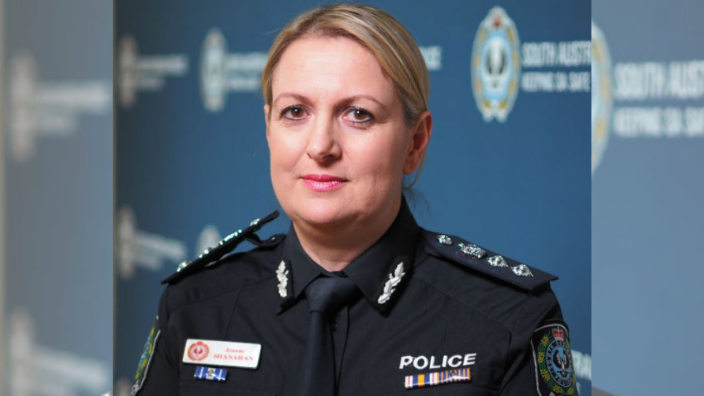
Q. How do you keep up and how do you cope with the current situation?
A. The secret to coping in stressful and busy situations is to surround yourself with good people. I have a wonderful dedicated team around me and we all look out for each other. In tough times we all have a responsibility to be even more considerate of those around us and make sure they are supported.
I also have my wonderful Greek family to supply love, vegetables and eggs, all from the garden. We also share toilet paper when the need arises!
Q. What is your message to the wider community?
Please, please, please, follow the directions and guidelines from official Government sources. I do not want members of my community falling ill. Many of the Greek community are elderly and therefore, in a vulnerable group.
The government has access to experts who we must be able to rely on with their advice. If any advice changes these changes will be immediately communicated and must be followed to ensure everyone’s safety.
Adoni Petrandonakis, Airline Pilot, Sydney:
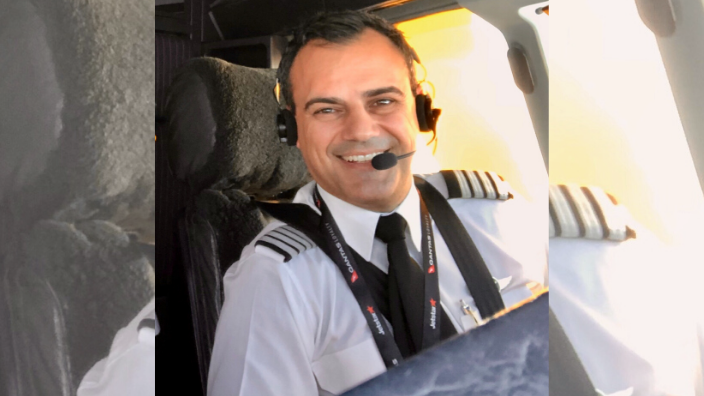
Q: How do you keep up and how do you cope with the current situation?
A: Similarly to a lot of others in the broader community, the aviation industry has been adversely affected resulting in standing down most of its employees. I have been affected by this as well and have had to make the necessary adjustments at home. Given the circumstances, we’re coping very well. We have three beautiful little girls to entertain and home school, and we’re making the most out of this valuable time at home with them.
Q: What is your message to the wider community?
A: It’s important to adhere to the Australian Government Department of Health guidelines. Remember to stay connected with family and friends. Stay safe and we’ll be on the other side of this before we know it!
Christina Salapatas, Funeral Director, Adelaide:
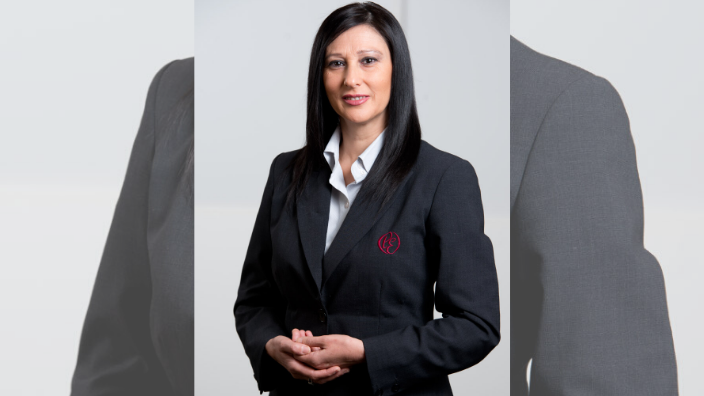
Q: How do you keep up and how do you cope with the current situation?
A: This is a very complex situation with rules and regulations changing daily. We are taking our role very seriously and working under the advice of federal and state authorities. It is a stressful time for people throughout the world. On average, a Greek funeral will see approximately 200 to 300 mourners attend a service. Sadly, those numbers have substantially reduced causing confusion and unease amongst families, professionals within the industry and our Greek community.
Q: What is your message to the wider community?
A: In the best interest of our community, we are strongly encouraging our families to adhere to the strict advice of authorities in regards to social distancing and maintaining hygiene standards. We must remember a majority of mourners are elderly and they are the highest risk group. Please, everybody stay safe.
If you are seeking information on coronavirus (COVID-19) call the National Coronavirus Helpline on 1800 020 080 or visit https://www.health.gov.au
